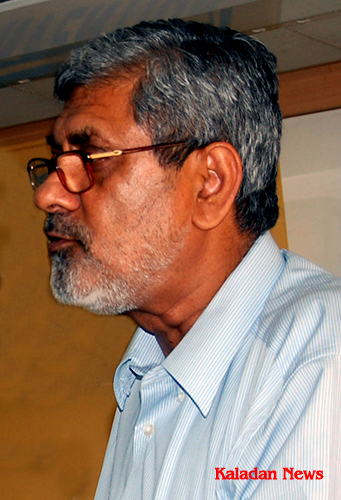An interview with Arakan Rohingya National Organization (ARNO) President Nurul Islam about Burmese President Thein Sein’s reform policies and its effect for the Rohingya.

KPN: The new Thein Sein’s government has held meetings with the Karen, Mon, Rakhine, Shan, Chin and Kachin but the Rohingya have not been excluded from the meetings. What are your opinions about this?
ARNO: The exclusion of Rohingyas asserts that U Thein Sein’s government has not changed their attitude towards our people. It is still holding onto to past policies which excluded, discriminated and persecuted the Rohingya population. We need to remind the government Rohingyas are an integral part of the Burma’s society regardless of the fact that their appearance, ethnicity and religion is different than the majority of the population.
KPN: The Rakhine community has been actively campaigning against the Rohingya community both inside Burma and also abroad. Do you think that the two communities can find a solution which would allow them to be able to work together?
ARNO: Rakhines are not only our immediate compatriots, they are our brothers. In the past we lived peacefully in Arakan state, sharing what we had. We are living in the same place, drinking the same water and breathing the same air. If our communities can get along we can achieve so much together. We should learn from our collective history. It’s not productive to preach and promote hostility against Rohingyas. Extremism, xenophobia and confrontation will only harm the Rakhine people. It’s not good to fight against each other. The Rohingya and Rakhine communities need to work together in order to foster a mutual understanding for the sake of our children’s future. Peaceful co-existence between our communities is the only solution. It’s entirely possible if we are willing to work for it.
KPN: Although there have been some positive changes in Burma with the new government, nothing has changed for the Rohingya. Persecution against the population is still happening on a daily basis. Can you comment on this?
ARNO: Yes, there have been some positive changes in Burma. But so far the government has done nothing to address the issues the Rohingya face. This clearly shows the government still has a long way to go in their reform policies. The Rohingya are being persecuted by racist and xenophobic laws upheld by the government and some extremists. We are not even considered citizens of Burma. Ending the persecution and discrimination against Rohingya would demonstrate the new government is genuine about implementing democracy and human rights in Burma. For this to happen, the government must include the ethnic Rohingya in country’s democratic and political process. A peaceful negotiated settlement of the Rohingya issue is not only important it’s imperative for the achieving lasting peace and democracy in Burma.
KPN: Regarding all of these issues affecting the country’s development, especially the Rohingya population, what are your future plans and programs? What recommendations would you make to the government, NLD and international community?
ARNO: The Rohingyas are still suffering from human rights violations in Burma because of their religion and ethnicity. We are denied the rights of citizenship making us stateless in our own homeland. This is an international crime.
In solidarity with other democratic groups, we will continue to struggle for our freedom and an end to persecution. We will also explore national and international avenues to ensure our rights and freedom within the union of Burma.
We want to be included as citizens of the country. Therefore we urge the government to treat Rohingyas with the same equal justice afforded to other ethnic groups in Arakan state and the rest of the country.
Its imperative the 1982 Burma Citizenship Law - repressive in its nature, violating several fundamental principles of international law - be amended to conform to internationally accepted standards.
Rohingya must be allowed to take part in the ongoing democratic process. We should not be denied the basic right of being citizens of Burma. We should share the same freedom enjoyed by other ethnic groups.
Although we have high expectations for Daw Aung San Suu Kyi so far, she has been surprisingly silent regarding the persecution of our people. As a democratic icon, advocating for human rights for all, we urge her to use her influence to speak out on behalf the Rohingya, who have no voice in Burma.
We will also continue to lobby the international community to pressure the government to stop human violations against the Rohingya and immediately grant them citizenship and ethnic rights. We also request the international community to protect the Rohingya from human rights violations in Burma.
KPN: What do you think about the NLD’s recent participation in parliament?
ARNO: The fact that Daw Aung San Suu Kyi and NLD MPs are participating in parliament in Naypyidaw is new development towards establishing democracy for Burma. But the NLD will face many challenges ahead to bring about real change for the country.



